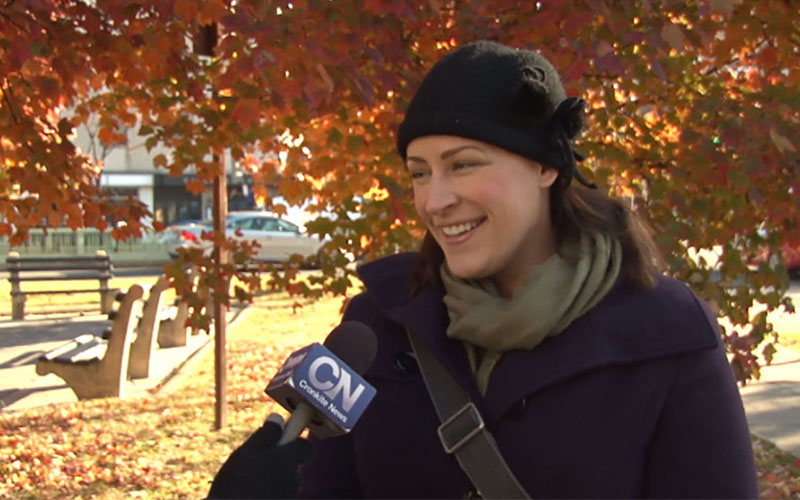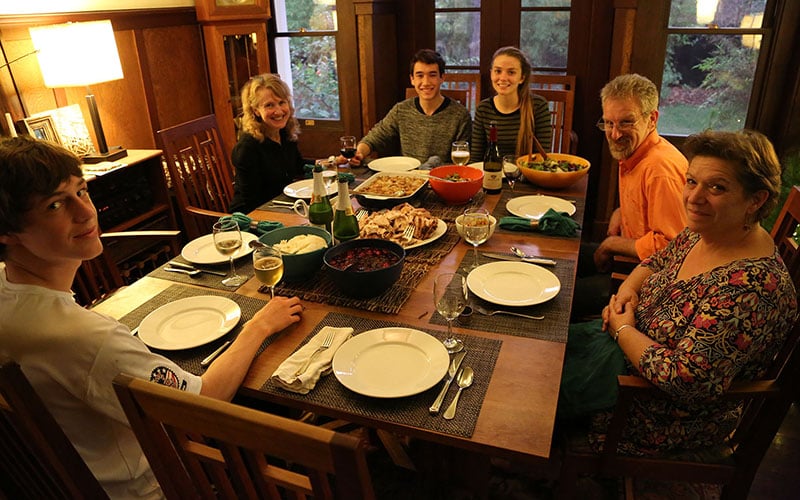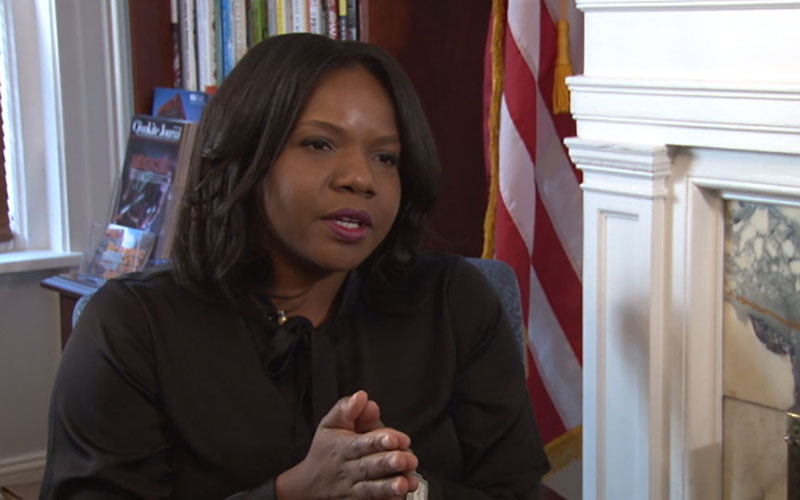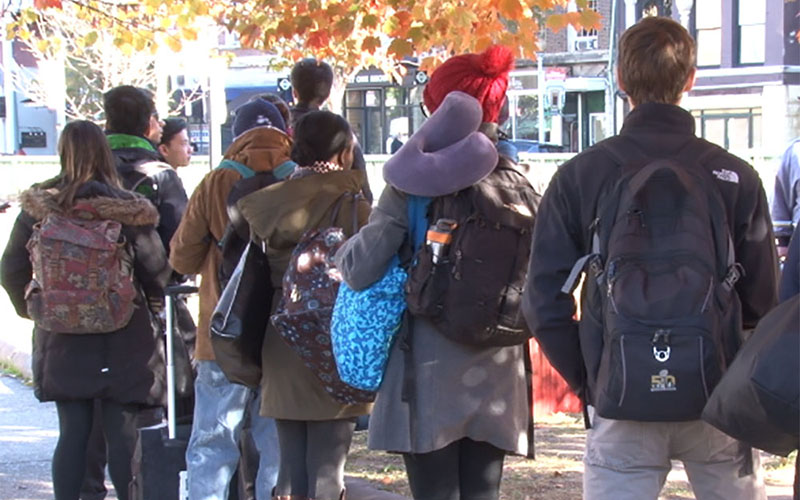WASHINGTON – Thanksgiving hosts should brace for some extra guests around the holiday table this year: Donald Trump and Hillary Clinton.
While Americans might be tempted to give thanks that the elections are finally over, experts say that considering how heated the election was – and still is for some – politically charged conversations will be unavoidable this holiday.
“It will be turkey with a side of politics,” said Crystal L. Bailey, director of the Etiquette Institute of Washington. “It’s really in the forefront, and really in the minds of everyone.”
The likelihood of strained discussions has sparked a flurry of statements, seminars and press releases from groups offering advice on how to survive the holiday without coming to blows over politics.
Or, as they said at a forum of political writers and civil rights groups Tuesday in Washington, “Don’t call your Uncle a racist” but have a constructive conversations about “bias, race and politics.”
But first, you have to be invited to dinner.
“Fear, disinterest and anger about … having hard family conversations has led to people being disinvited from Thanksgiving, trying to avoid these conversations at the dinner table or swearing off the holiday altogether,” said Scott Simpson, a spokesman for the Leadership Conference on Civil and Human Rights.
Julie Fisher-Rowe with the Opportunity Agenda said families normally have conversations comfortably and candidly, but when politics are added to the mix it’s time “to really think strategically.”
“How you start the conversation is really important … and moving from there,” Fisher-Rowe said at Tuesday’s discussion. She suggests starting a conversation “on a place of agreement” rather than disagreeing right away.
“You want to walk away with hopefully everyone growing from it,” she said.
That’s easier said than done, said Jennifer Glinzak, a student services coordinator at the Levine School of Music, when asked about the prospects for her family get-together.
-Cronkite News video by Sabella Scalise
“It’s going to be interesting this year because we are diametrically opposed politically,” Glinzak said. “I would so rather avoid that subject, I don’t want to talk about it at all.”
But John Siman, who was getting ready to board a bus to New York for Thanksgiving with family, said they will be ready to talk politics.
“We think the Democratic Party and Republican Party are in deep trouble,” Siman said. “We talk politics the way most people talk sports.”
Daniel Parga, will be doing a “Friendsgiving” in Washington, expected much the same. “We have to talk about politics, we live politics,” Parga said.
But he said that for those who don’t want to indulge in debate along with their turkey, one option is to change the subject. He recommended talking about future travel, professional plans and New Year’s resolutions.
Bailey said there are some best practices to “avoid a food fight.”
“Knowing that we might not be able to avoid the topic, we really should try to embrace it,” she said.
But before you decide to bring it up, she said, think.
“If you’re bringing up politics, you first have to think about why are your bringing it up: Are you bringing it up so that we have this hot-topic fiery debate that’s going to end in everyone walking away?” she asked. “Or are you bringing it up to learn something and to get an understanding of what everyone has to say?”
Bailey said listening never hurts, and people might want to be thankful for a new learning experience.
“Maybe now is good time to listen to why individuals may have voted the way they have or supported a particular candidate, and create a little closure as we move forward into the next four years,” she said.
Glinzak has her own solution.
“It’s going to come up and we are going to be like, ‘Drink your champagne and shush,'” she said.



